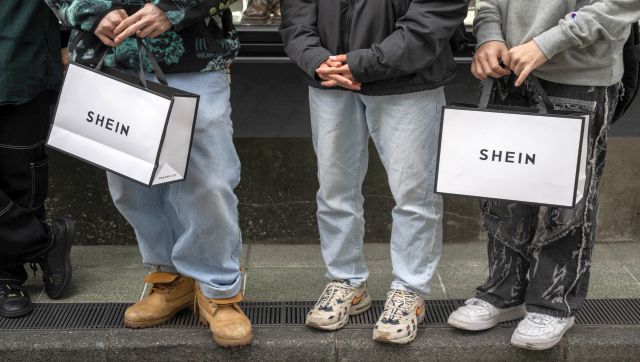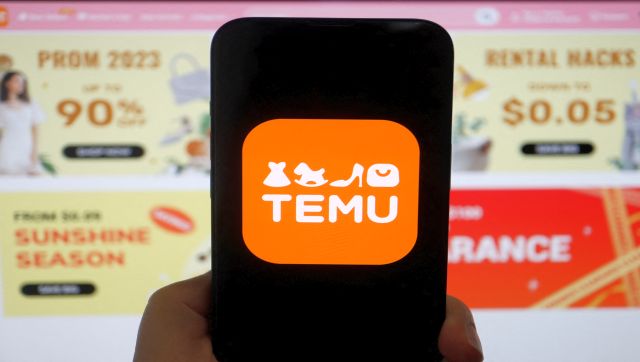The Shein-Temu rivalry has just heated up further. Online shopping giant Temu, which has ties to China, is suing rival Shein again, alleging its competitor is pushing dubious copyright infringement notices against the company and using “mafia-style intimidation” of suppliers to limit its growth in the United States. The company in its lawsuit alleges that the anticompetitive behaviour of Shein, which was
banned in India in 2020 , has not only persisted but intensified. On the other hand, Shein told TechCrunch that the company “believes this lawsuit is without merit and will vigorously defend” itself. We give you the full picture on the lawsuit and trace back the rivalry between the two shopping giants. Temu’s lawsuit against Shein There are a myriad of allegations that Whaleco Inc, which operates as
Temu in the US, has levelled against Shein. In its 100-page-long complaint, Temu claims that Shein has been summoning suppliers it believes to be working with Temu to its offices, detaining them for hours, seizing their phones and threatening to impose penalties for doing business with its rival. It alleged that the actions were part of a “desperate plan” by Shein to wipe out competition in the US, which also saw them coercing suppliers to sign over their intellectual property rights and relying on those agreements to obtain copyright registrations in America. Temu’s suit also alleges that Shein has been “instigating and supporting dubious copyright infringement lawsuits”. For instance, the suit states that an estimated 100,000 images are uploaded to Temu each day and that it receives an average of 170 copyright takedown requests per day – of which 63 per cent come from Shein. Temu further adds that in the recent times Shein’s valuation had fallen and hence, it was resorting to such methods to tamp down on competition. Temu also stated that it was prepping for a huge advertising campaign at the time of US’ Super Bowl in February 2024. The firm, in its suit, maintained that it believed that the campaign would “increase traffic to the app and website”. [caption id=“attachment_13507762” align=“alignnone” width=“640”] FILE - Pages from the Shein website (left), and from the Temu site. In a complaint filed at a federal court in Washington DC, Temu alleges Shein is pushing dubious copyright infringement notices against the company and using “mafia-style intimidation” of suppliers to limit its growth in the US. File image/AP[/caption] And hence, Shein was “resorting to even more desperate and coercive measures, including physical detention of merchants who dare to work with Temu, personal threats, and illegal seizures of merchants’ personal devices to obtain access to the merchants’ Temu accounts and Temu’s confidential information and trade secrets”. Speaking to CNN, a Temu spokesperson said, “Their actions were too exaggerated, we had no choice but to sue them.” Meanwhile, Shein has refuted the claims with representatives saying, “We believe this lawsuit is without merit and we will vigorously defend ourselves.”
**Also read: TikTok is facing a ban in US. But America still addicted to these Chinese apps** Not the first time Importantly, this is just the newest chapter in the rivalry between the two companies – Shein and Temu. They have clashed in court earlier too, with the two brining suits against one another. Back in July, Temu sued Shein, alleging it violated antitrust laws by using threats and intimidation to block clothing manufacturers from working with the upstart. In its lawsuit then, Temu said, “The US market is the primary theatre of this war,” adding that Shein was “engaged in an elaborate and anti-competitive scheme aimed at stymieing Temu’s business”. [caption id=“attachment_13507792” align=“alignnone” width=“640”]
Shein and Temu have a long-standing rivalry. Shein has also filed a lawsuit against Temu, alleging that it had contracted social-media influencers to make “false and deceptive statements” against the fast-fashion giant. File image/Reuters[/caption] Prior to that in December 2021, Shein accused Temu of contracting social-media influencers to make “false and deceptive statements” against Shein. In its lawsuit, Shein stated “Temu had also attempted to impersonate the brand and trick consumers into believing Temu is associated with that brand.” Responding to those claims, Temu had stated that it never impersonated Shein. It also said “there is nothing actionable” about finding influencers who believe Temu compares favourably to Shein, or asking them to share those opinions.” Temu vs Shein: A fight to remember Shein and Temu are mammoth e-commerce business based in China. Shein, which has become synonymous with cheap clothes, was founded 15 years ago. It has become a behemoth and in 2022 earned a valuation of $100 billion. On the other hand, Temu, launched in September 2022 by Chinese e-commerce giant PDD Holdings, owner of Chinese online retailer Pinduoduo, has become the go-to website for household products. In fact, CNN called Temu “an online superstore for virtually everything.” However, both firms are competing to dominate the quickcommerce market. [caption id=“attachment_13507832” align=“alignnone” width=“640”]
 Shein, which has become synonymous with cheap clothes, was founded 15 years ago. It has become a behemoth and in 2022 earned a valuation of $100 billion. File image/AFP[/caption] It was reported that amid the COVID pandemic, Shein had beat industry stalwarts like Zara and H&M in the US market, by making items more quickly and being more digitally savvy with customers. Temu, too, has clinched a strong position since its launch last year. In September 2022, the platform boasted the top spot in the free shopping app category in both Apple’s App Store and Google’s Play Store. It has beaten e-commerce giants like Amazon. But with all its success, both sites have also attracted criticism and controversy. Shein has been slammed for its
poor labour rights , greenwashing and copyright infringement, In July, Swedish retailer H&M had sued Shein for copyright infringement. And Temu is no stranger to controversy either. Since its launch, it has come under fire for the pressure it puts on its suppliers. In China, it has been reported that small manufacturers are urged to cut prices to levels that make it near impossible to turn any sort of profit. There’s also the complaint that Temu has very few formal affiliations with big brands and chooses to opt for rip-offs and knock-offs, raising the issue of copyright infringement and quality control. Some customers also complain that the products never arrive or are of very poor quality. Furthermore, Temu has been slammed for reportedly paying influencers for providing positive reviews on items. This came after it emerged that reviews were of only two types – entirely negative or full of praise. But despite all the criticism that both sites face, they are here to stay. Temu had more than 61 million monthly active users in the US, according to research company Data.ai. Meanwhile, Shein has been the top-ranked shopping app on the Google Play store in 115 countries, according to Data.ai. With inputs from agencies
Shein, which has become synonymous with cheap clothes, was founded 15 years ago. It has become a behemoth and in 2022 earned a valuation of $100 billion. File image/AFP[/caption] It was reported that amid the COVID pandemic, Shein had beat industry stalwarts like Zara and H&M in the US market, by making items more quickly and being more digitally savvy with customers. Temu, too, has clinched a strong position since its launch last year. In September 2022, the platform boasted the top spot in the free shopping app category in both Apple’s App Store and Google’s Play Store. It has beaten e-commerce giants like Amazon. But with all its success, both sites have also attracted criticism and controversy. Shein has been slammed for its
poor labour rights , greenwashing and copyright infringement, In July, Swedish retailer H&M had sued Shein for copyright infringement. And Temu is no stranger to controversy either. Since its launch, it has come under fire for the pressure it puts on its suppliers. In China, it has been reported that small manufacturers are urged to cut prices to levels that make it near impossible to turn any sort of profit. There’s also the complaint that Temu has very few formal affiliations with big brands and chooses to opt for rip-offs and knock-offs, raising the issue of copyright infringement and quality control. Some customers also complain that the products never arrive or are of very poor quality. Furthermore, Temu has been slammed for reportedly paying influencers for providing positive reviews on items. This came after it emerged that reviews were of only two types – entirely negative or full of praise. But despite all the criticism that both sites face, they are here to stay. Temu had more than 61 million monthly active users in the US, according to research company Data.ai. Meanwhile, Shein has been the top-ranked shopping app on the Google Play store in 115 countries, according to Data.ai. With inputs from agencies
Chinese low-cost online retailer Temu has taken Shein to court in the US, alleging the fast-fashion giant is using aggressive tactics to curtail its growth. It stated that Shein had called suppliers and locked them up. The lawsuit is an escalation of rivalry between the two ultrafast retailers
Advertisement
End of Article


)

)
)
)
)
)
)
)
)



